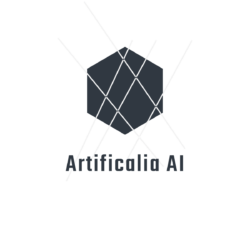Artificial intelligence (AI) is rapidly changing the world around us. In the coming years, AI is expected to have a major impact on every industry and profession. As a result, it is more important than ever for individuals to develop the skills they need to thrive in the AI Revolution.
Table of Contents
In this blog post, we will discuss nine non-technical AI skills that are essential for staying ahead of the curve. These skills are applicable across professions and industries, and they can be learned by anyone with a basic understanding of AI technology.
Prompt engineering
Prompt engineering is the art and science of crafting effective prompts to elicit the desired response from AI language models like GPT-3. To truly appreciate the value of this skill, let’s think of AI as a genie in a bottle. If you don’t ask the genie the right question or make the right wish, you might not get the outcome you desire. In the same vein, mastering prompt engineering allows you to communicate with AI systems more effectively and efficiently.
AI-powered personal branding
In the age of AI, personal branding has taken on a whole new dimension. By leveraging AI-powered tools, you can create a unique and memorable personal brand that sets you apart from the crowd. But what exactly does AI-powered personal branding entail, and why should you care?
Well, think of your personal brand as a mosaic. It’s a collection of pieces that come together to form a complete picture of who you are, what you stand for, and what you bring to the table. Now imagine using AI to enhance and refine each piece of that mosaic, making it even more vibrant and captivating.
For example, you could use AI-generated logos to create a stunning visual identity for your brand. Or, you could leverage AI-powered content generation tools to craft engaging articles or social media posts that showcase your expertise and thought leadership. Even your online interactions can be enhanced with AI, as virtual assistants can help you manage your social media presence, engage with your audience, and ensure that your brand remains consistent across various platforms.
Data storytelling and visualization
By transforming raw data into captivating narratives and visuals, you can make your findings more accessible, relatable, and persuasive. But why is this skill so crucial in the age of AI?
As AI systems become more adept at analyzing and processing vast amounts of data, our ability to extract meaningful insights from that data becomes increasingly valuable. Data storytelling allows us to bridge the gap between cold hard numbers and the human experiences that those numbers represent.
For example, a non-profit organization working to address the global water crisis could use data storytelling to transform complex data on water scarcity, usage patterns, and environmental factors into a compelling narrative that inspires action. They could create an interactive map that shows the severity of water scarcity across different regions, or develop an animated infographic that illustrates the impact of water saving initiatives.
Creative AI thinking
Creative AI thinking is the ability to envision novel, innovative, and transformative applications of AI technology. It’s about looking beyond traditional use cases and exploring the boundaries of what AI can accomplish. But why is this skill so vital in the AI Revolution?
Simply put, AI is reshaping our world in unprecedented ways. By fostering creative AI thinking, we can uncover new possibilities, solve complex problems, and elevate our work to new heights. The magic lies in the fusion of human creativity and the power of AI, resulting in groundbreaking solutions that were previously unimaginable.
AI business strategy and implementation
In the rapidly evolving world of AI, having a clear business strategy and implementation plan is crucial for staying ahead of the curve. But what does this skill entail, and why is it so important?
An effective AI business strategy involves identifying opportunities to integrate AI within your organization, assessing potential risks, and developing a roadmap for achieving your goals. It’s about understanding the broader implications of AI and harnessing its power to drive innovation, efficiency, and competitive advantage.
For example, a retail company looking to optimize its supply chain could use AI-driven forecasting and inventory management systems to streamline its operations, reduce waste, and ultimately boost its bottom line. The key to success lies in developing a comprehensive AI strategy that addresses challenges such as data privacy concerns and the need for employee training.
AI project management
As AI continues to permeate various industries, the demand for skilled AI project managers is on the rise. But what does it take to excel in this role, and why is it so vital in the age of AI?
Project management requires a unique blend of technical and non-technical skills to successfully oversee AI projects. You’ll need:
- Technical skills in AI, such as knowledge of machine learning algorithms, natural language processing, and data mining.
- Non-technical skills such as communication, problem-solving, and leadership.
AI project managers need to be able to understand the technical aspects of AI projects, but they also need to be able to communicate with non-technical stakeholders and to manage the project as a whole. They need to be able to identify and mitigate risks, and they need to be able to deliver projects on time and within budget.
Natural language processing (NLP)
Natural language processing (NLP) is the field of computer science that deals with the interaction between computers and human (natural) languages. NLP is a critical skill for anyone who wants to work with AI, as it allows us to understand and interact with AI systems in a natural way.
For example, NLP can be used to create chatbots that can have conversations with humans, or to develop natural language interfaces for AI-powered applications. NLP is also used in machine translation, where it can be used to translate text from one language to another.
Curiosity and continuous learning
The field of AI is constantly evolving, so it’s important to be curious and to continuously learn about new developments. This will help you to stay ahead of the curve and to be able to take advantage of new opportunities as they arise.
You can stay curious and learn continuously by reading AI-related articles and blog posts, attending conferences and meetups, and taking online courses. You can also network with other AI professionals and learn from their experiences.
Intuitive understanding of AI limitations
As powerful as AI is, it’s important to remember that it is not perfect. AI systems can make mistakes, and they can be biased. It’s important to have an intuitive understanding of AI limitations so that you can use AI systems effectively and responsibly.
For example, if you’re using an AI system to make hiring decisions, you need to be aware of the potential for bias. You can mitigate this risk by using multiple AI systems and by having human experts review the results.
By developing these non-technical AI skills, you can set yourself up for success in the AI Revolution. These skills are applicable across professions and industries, and they can be learned by anyone with a basic understanding of AI technology.
So what are you waiting for? Start learning these skills today!



